Search Results
Showing results 1 to 20 of 134

Neurotransmitters Contain Chemicals
Source Institutions
In this activity, learners play a simple card game to learn the sequence of events in the transmission of nervous system signals.

Digestion
Source Institutions
In this food science activity, learners explore digestion and proteins by observing the action of meat tenderizer on luncheon meat.
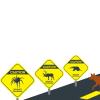
Caution! Wildlife Crossing
Source Institutions
In this design challenge, learners use their creativity and imagination to design and test a wildlife crossing for their favorite animal.

Share Your Planet
Source Institutions
In this cooperative game, learners devise strategies about sharing a small space with each other.
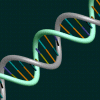
String Genome
Source Institutions
In this biology activity (page 5 of the PDF), learners use yarn and sticky labels to build a model of a DNA strand. They discover that DNA is very long, very skinny, and packs well into cells.

Find the Fat
Source Institutions
Fat is a very important component in our diet. It's the most efficient source of energy in our bodies, and plays an important role in the flavor of foods.
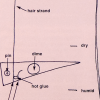
Better Hair Through Chemistry
Source Institutions
In this activity, learners hook up a hair to a lever system and create a hair hygrometer to measure changes in humidity.
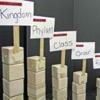
Classification Line-up
Source Institutions
This activity was designed for blind learners, but all types of learners can use it to organize an interactive model for learning the classification system (taxonomy) of living things.
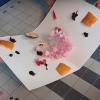
Nature Painting
Source Institutions
In this activity learners will create paint out of natural materials. Explore your natural world (or your fridge) and find berries, leaves, or flowers to find a great base for your paint.
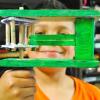
Matraca
Source Institutions
In this activity, learners create a traditional Mexican noisemaker (a matraca) using cardboard, craft sticks, and a wooden dowel.

Basking Basics
Source Institutions
In this activity, learners will explore reptile biology by taking temperature readings in various places and comparing them.

Oh Boy Buoyancy
Source Institutions
In this physics activity, learners will explore the concept of buoyancy, especially as it relates to density.

DNA Modeling Activity
Source Institutions
Using pipe cleaners, straws, and beads, learners explore the building blocks of life by creating their own model of DNA.
Growing Plants: Track Their Growth
Source Institutions
In this activity, learners will be working with predictions with a time frame of one week, or longer. Start by planting seedlings.

Make a Dinosaur Model
Source Institutions
In this activity, learners explore dinosaur skeletons, anatomy, and locomotion. Learners compare and contrast dinosaur skeletons and drawings.

Seeing Your Retina
Source Institutions
In this quick optics activity, learners use a dim point of light (a disassembled Mini MagLite and dowel set-up) to cast a shadow of the blood supply in their retina onto the retina itself.

Cover Your Mouth
Source Institutions
In this health activity (page 3 of the PDF), learners will discover why covering their mouth and nose while sneezing is so important.
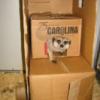
Animal House
Source Institutions
The goal of this activity is to design, build and test a house or toy for an animal.
Pollution and Lung Health
Source Institutions
Learners will build a lung model to understand how their lungs and diaphragm work to make them breathe.
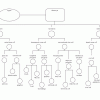
The Game of Life: Stem Cell Edition
Source Institutions
In this activity, learners play a game that models what happens as stem cells differentiate into different cell types.
